Best Dog Chew Toys
Showing all 16 results
Interactive, Nose Work Toys For Dogs That Like To Dig Indestructible
Best Dog Chew Toys: Interactive, Nose Work, Indestructible, Digging Toys. Find the best selection of unique dog toys at iHeartDogs. All purchases help shelter dogs in need.
Why Do Dogs Bring You Toys?
Dogs bring you their toys to request attention or a rub behind the ears. If your dog brings you their leash, they may be bored or ready for a walk. Dogs are people-pleasers, which makes them good service companions. Some breeds bring toys out of training or instinct, while others think you need comfort.
Many people give you gifts or toys out of love as they want to make you happy. A wagging tail and a toy may mean your dog misses you when you get home from work. When their owner arrives, some dogs lick, wag, jump, or bark; others bring a toy. They want to be involved in your life through gifts.
Dogs often carry and bring toys as it soothes them and encourages relationships. In addition, carrying a toy can help calm your dog during fireworks or when strangers visit. Finally, they may simply be bored or want to have a special moment with you.
Why Does My Dog Bring Me Toys?
Many dogs will only bring toys to one person in the house, their favorite, or the person they know to be the most willing to appreciate their affection. Others know that person will respond favorably and start a game of catch or tug of war. If you have a family dog, each family member is likely to have a different relationship with them.
While your dog will love and care for each person, they learn what to expect from each person. Dogs bond with people differently, but they frequently form a special bond with one person. This is usually, but not always, the person who spends the most time with the dog. Even if they do not see each other very often, dogs form special bonds with the people they adore.
Why Does My Dog Groom His Toys?
Your dog may groom their toys for many reasons. For starters, they may simply like the taste or be bored. Alternatively, she might be thirsty or hungry. While this seems strange, toys may have bits of leftover food and scents they are drawn to and enjoy.
Dogs start licking before they can open their eyes, so they explore with their tongues. This habit can continue into adulthood, causing frequent licking. In addition, Mama dogs may miss their babies and caring for their young, which can cause them to turn to stuffed animals.
Moreover, liking may have a root in anxiety, and licking toys helps to self-soothe.
Separation anxiety may be making your dog anxious, and they may start licking when you leave or if they feel you are in a nervous mood. Dogs can also get OCD, and licking toys may mean it’s time to visit a vet if it’s a new behavior.
Finally, If your dog did not always lick their toys, think about what changed. Out of nowhere, they may start due to anxiety, hunger, or dehydration. Consider why your dog licks its toy more at certain times. The behavior may also link to dementia in older dogs, nausea, mouth problems, and boredom.
How To Get Dog To Chew Toys?
Training is needed if your dog chews on everything but toys. Some dogs or breeds may not enjoy chewing, even if their toys are healthy. Your dog may not have the right chew toy. Reward your dog for playing with his toy. Try adding peanut butter or broth to the toy.
People punish their dogs for chewing inappropriate items when other methods work better. Punishing dogs is unpleasant for both dog and person and ineffective given all the inappropriate objects in your home. In addition, punishing your dog takes a lot of time. All this punishment may lead to a fearful dog and owner-absent chewing.
Instead, give your dog something valuable to chew on so he will not choose anything else. Play chew toy games to keep your dog from chewing furniture or slippers. Hide food-stuffed chew toys for your dog to find and enjoy. There are many easy and hard toys to choose from. These enrichment or puzzle toys can hold meals or treats. Dogs like edible chew toys and bully sticks. If you stuff these toys with treats, your dog will prefer them to furniture.
Why Do Dogs Shake Toys?
Certain breeds of dogs shake toys, which all dogs love. However, even the best dog toys can be choking hazards in your dog’s mouth, so supervise playtime to reduce the risk. Dogs shake toys to keep their predatory instincts active.
Dogs play with toys to learn survival skills and release natural urges. Dogs are scavengers who will hunt mice, rats, rabbits, lizards, and even cats. With their mouths as their main defense, dogs must shake larger prey to prevent an attack and break the animal’s neck. Do not discourage them if they are not hurting anyone or anything besides their toy. Good pet parents let dogs display natural behaviors.
Medicated dogs should not shake their toys. Shaking toys vigorously can worsen some dogs’ ear, jaw, and back problems. Also, broken dog toys are dangerous. Remove toys with loose parts or falling stuffing from your dog’s play area. Rotate dog toys, but you may need to buy new ones.
Why Do Dogs Roll On Their Toys?
Dogs roll on their toys for several reasons. They may roll on a toy, food, or something they find while playing or exploring. Also, they could merely be happy. A dog’s entire body expresses happiness and joy during play. Rolling around on a favorite toy may make them happy because it is theirs.
Next, dogs naturally roll on smelly objects such as their toys as a wild instinct to mark it with their scent. Rolling on a stinky toy was a way to add their scent to ward off enemies in the wild. Wolves hunt by disguising themselves with scents.
Another reason for the odd behavior, your dog may be trying to get rid of an unwanted smell like fabric softener or the cat who keeps laying on the toy. If your dog rubs against things or drops and rolls after a bath, the shampoo may bother them, either the scent or the feeling.
Your dog enjoys rolling around on his back. Rolling on an object may feel good to him. If your dog favors a toy without a strong scent, it may be a simple pleasure, like a back rub. Your dog would not roll on hard or bulky objects if it hurt him.
Lastly, your dog may be itching from tick bites or a skin allergy by rubbing against hard objects or the floor or bed. If you are worried, check their skin and fur for irritants. Take the rolling as a good sign, as dogs who roll around unfettered are secure in their surroundings and people.
Why Do Dogs Like Toys?
Toys serve a vital role in a dog’s mental and physical development. Of course, your dog is just having fun when they pull out their favorite toy from the basket. But just because your dog is focused on shredding a Super Chewer toy or tugging on a tug bug does not mean there are not deeper reasons behind playing.
Dogs need toys for mental stimulation, chewing, and behavior modification. Toys stimulate a dog’s mind and body and meet his emotional and physical needs. Even though most dogs today are companions, they still need jobs. Therefore, they will find ways to occupy their time and chew out of boredom without a job.
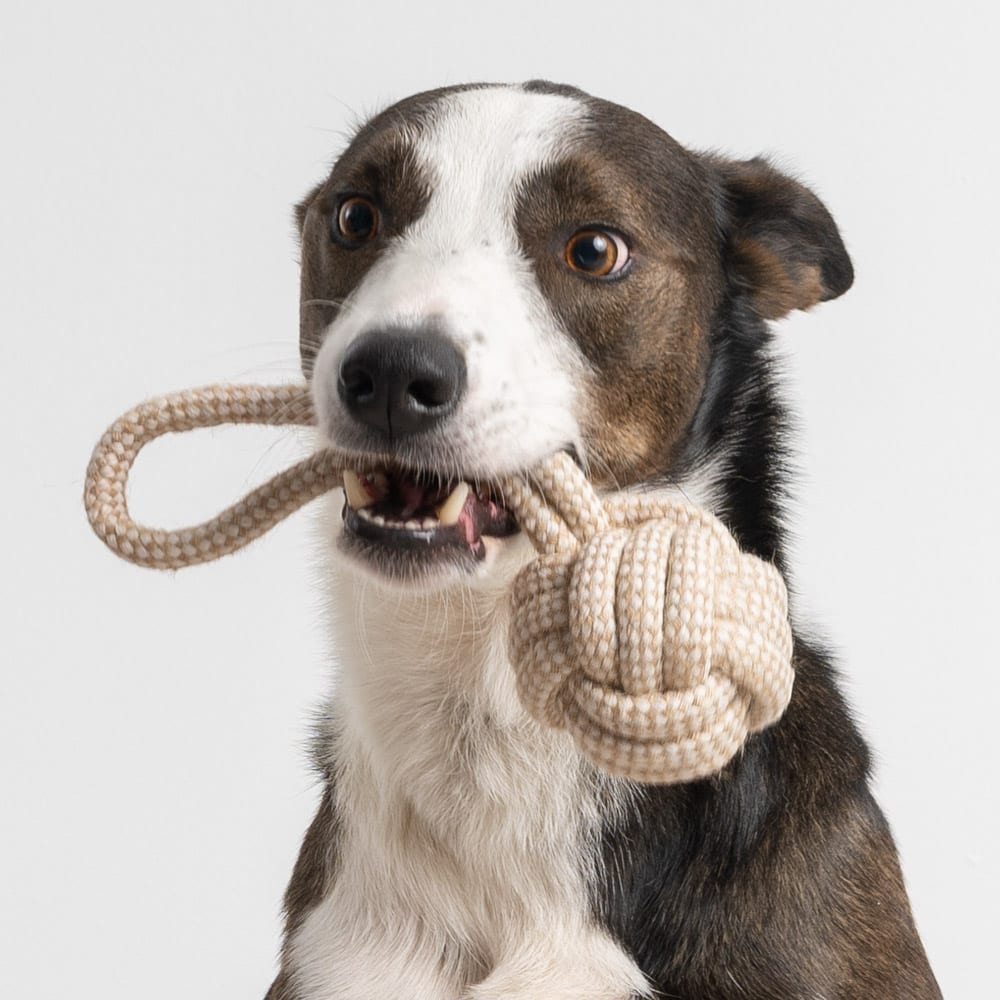
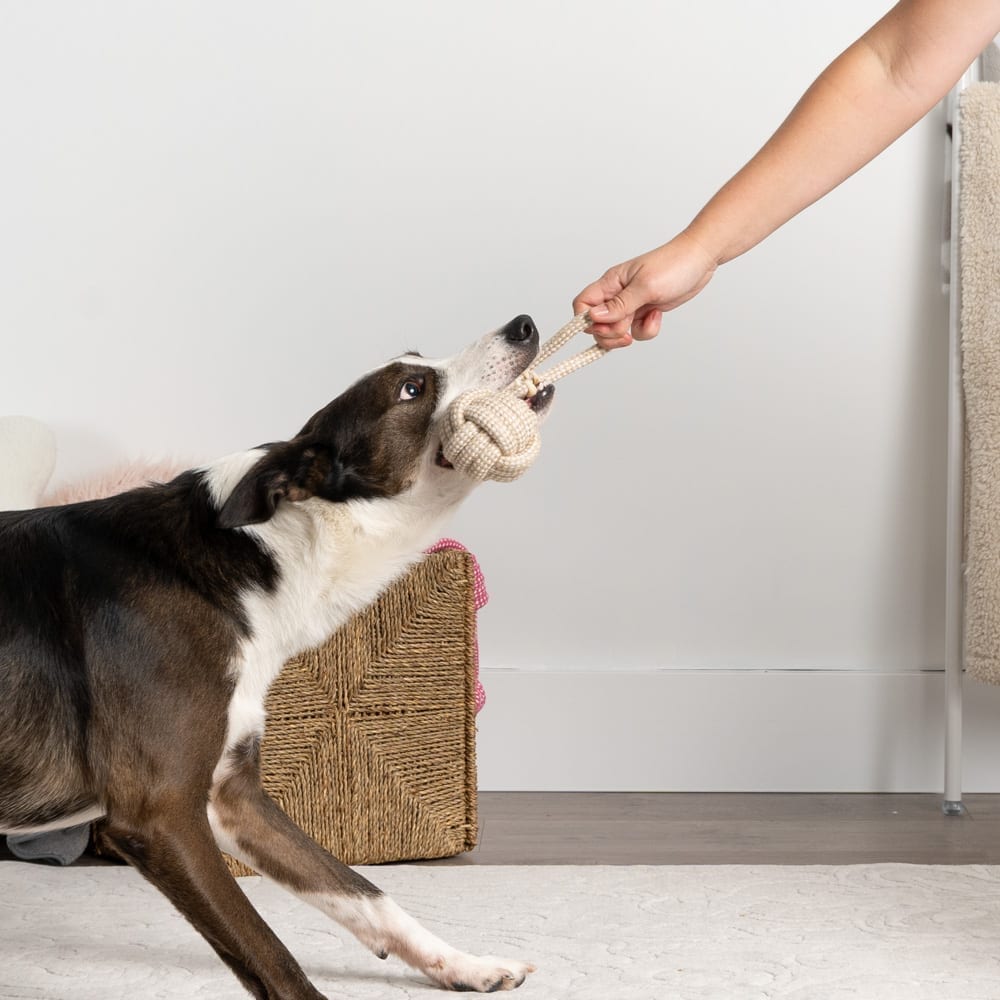
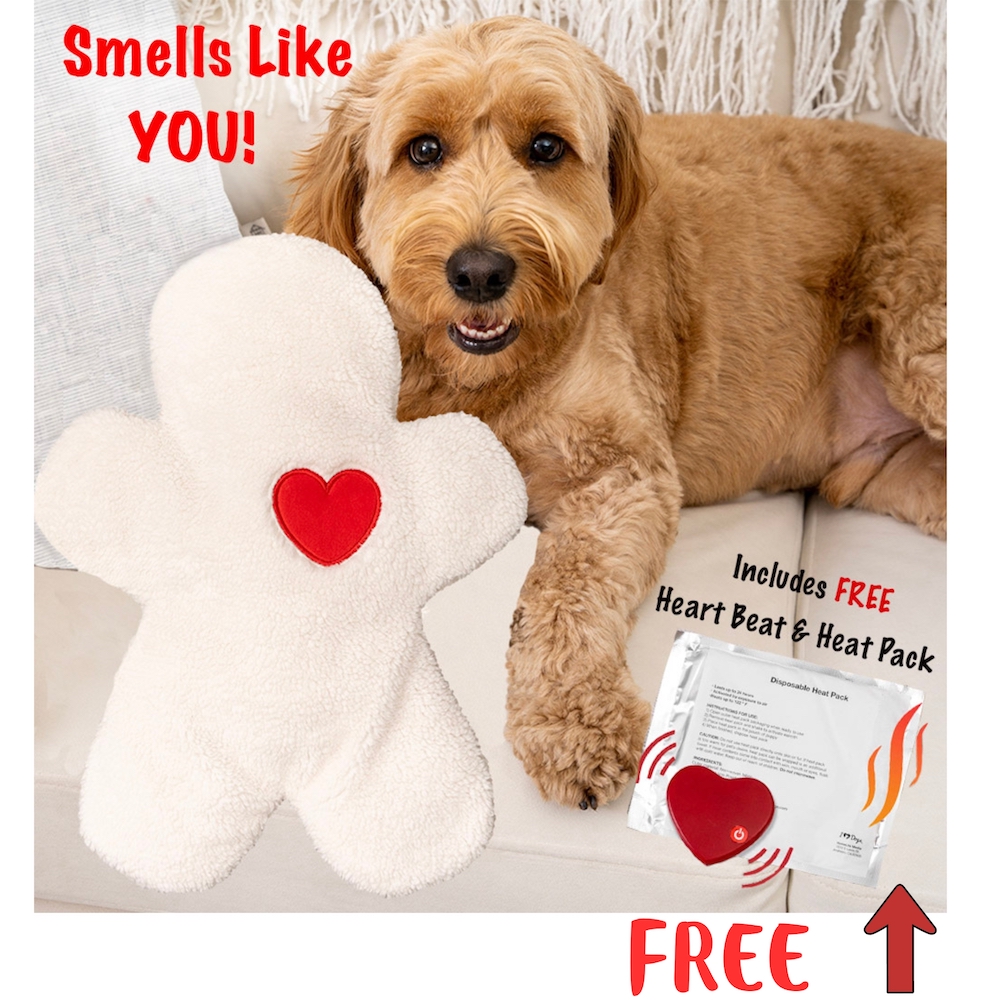

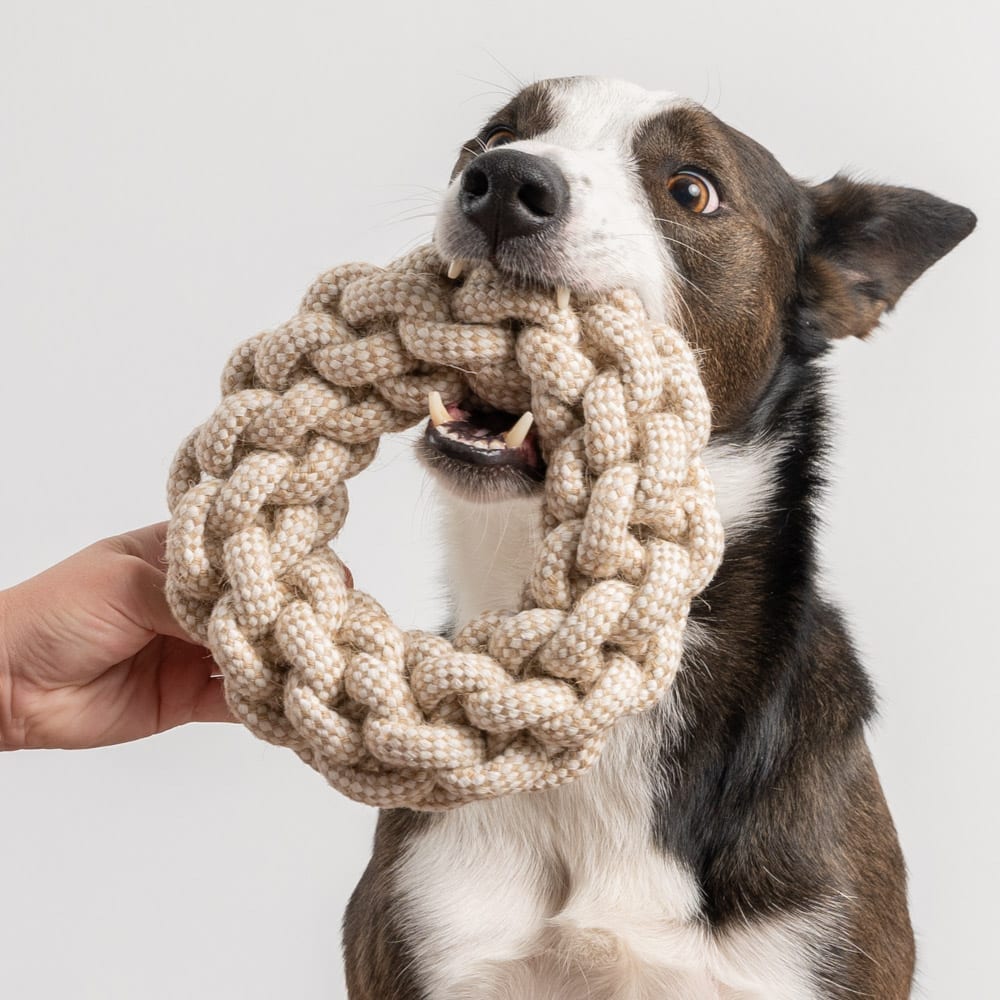
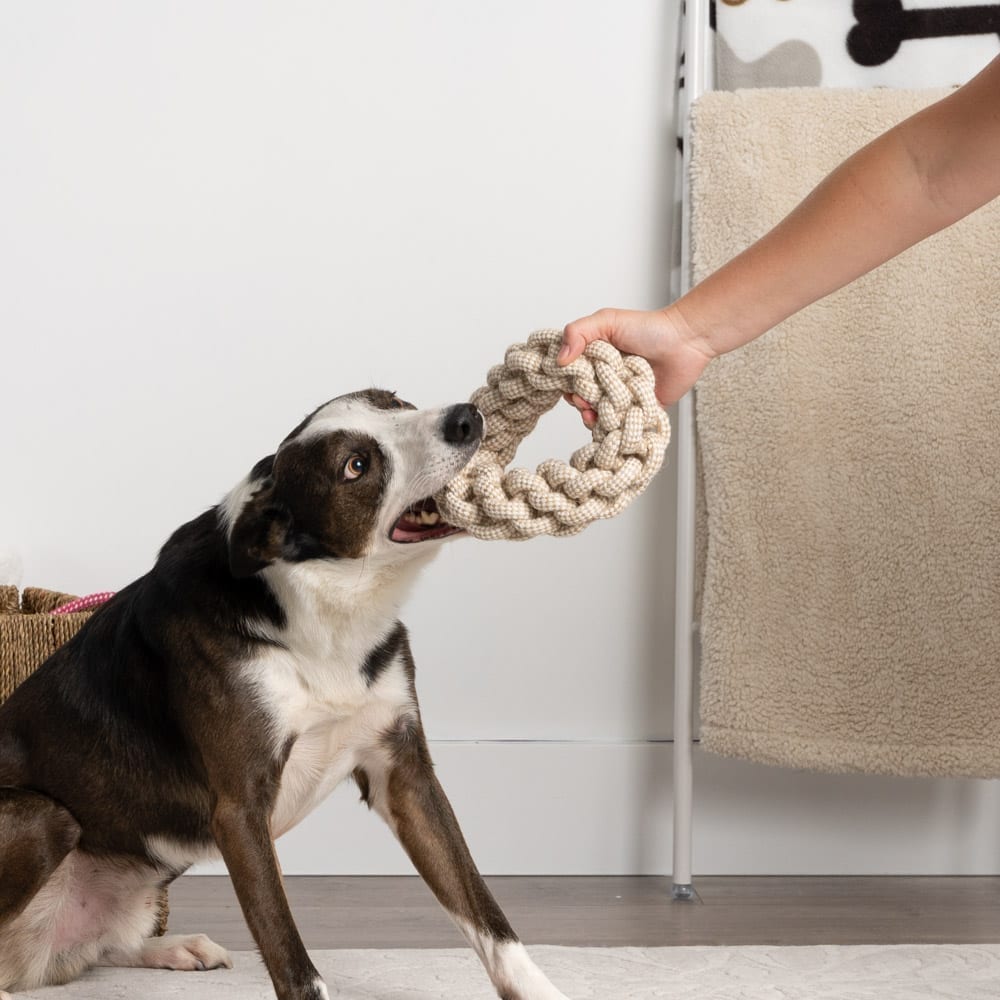
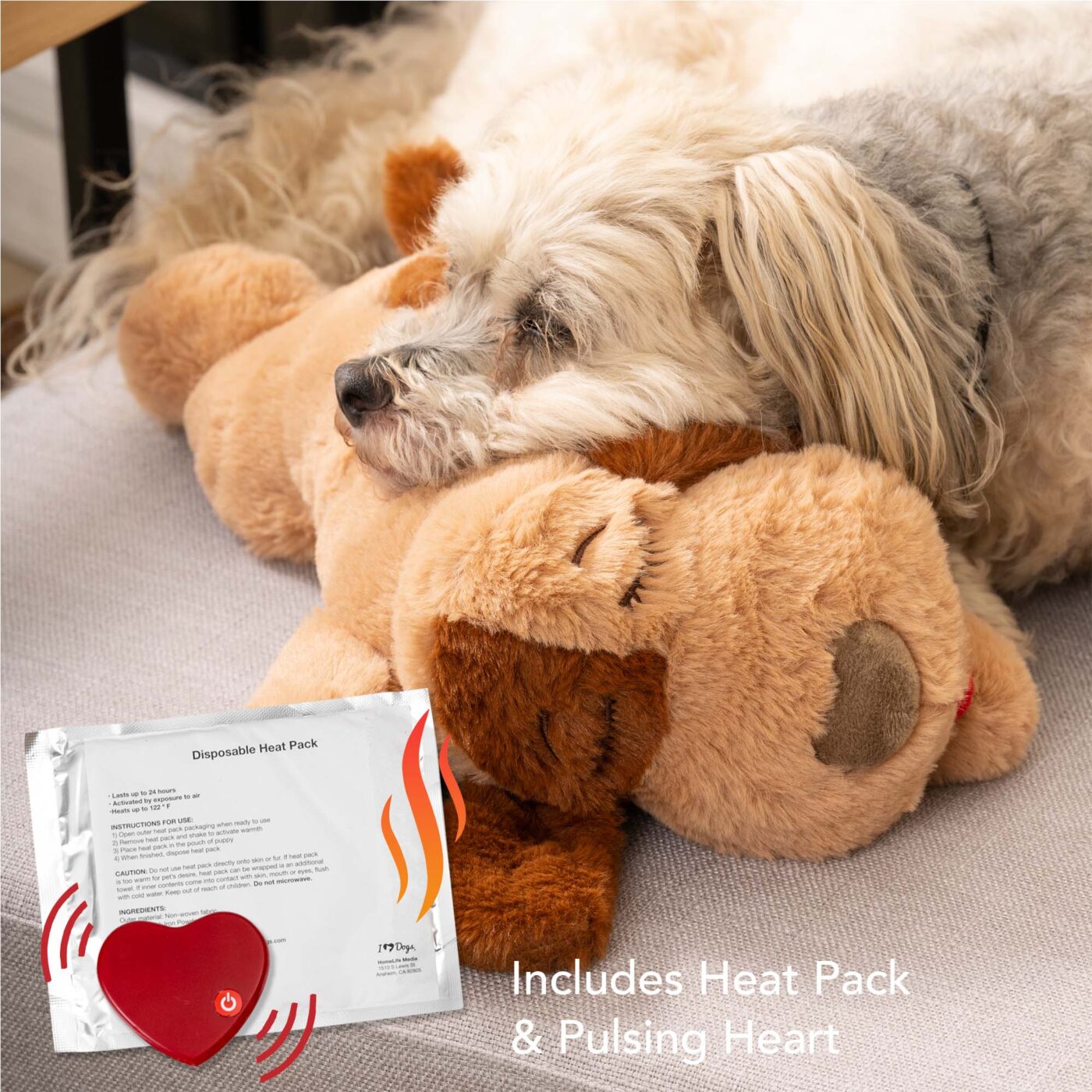

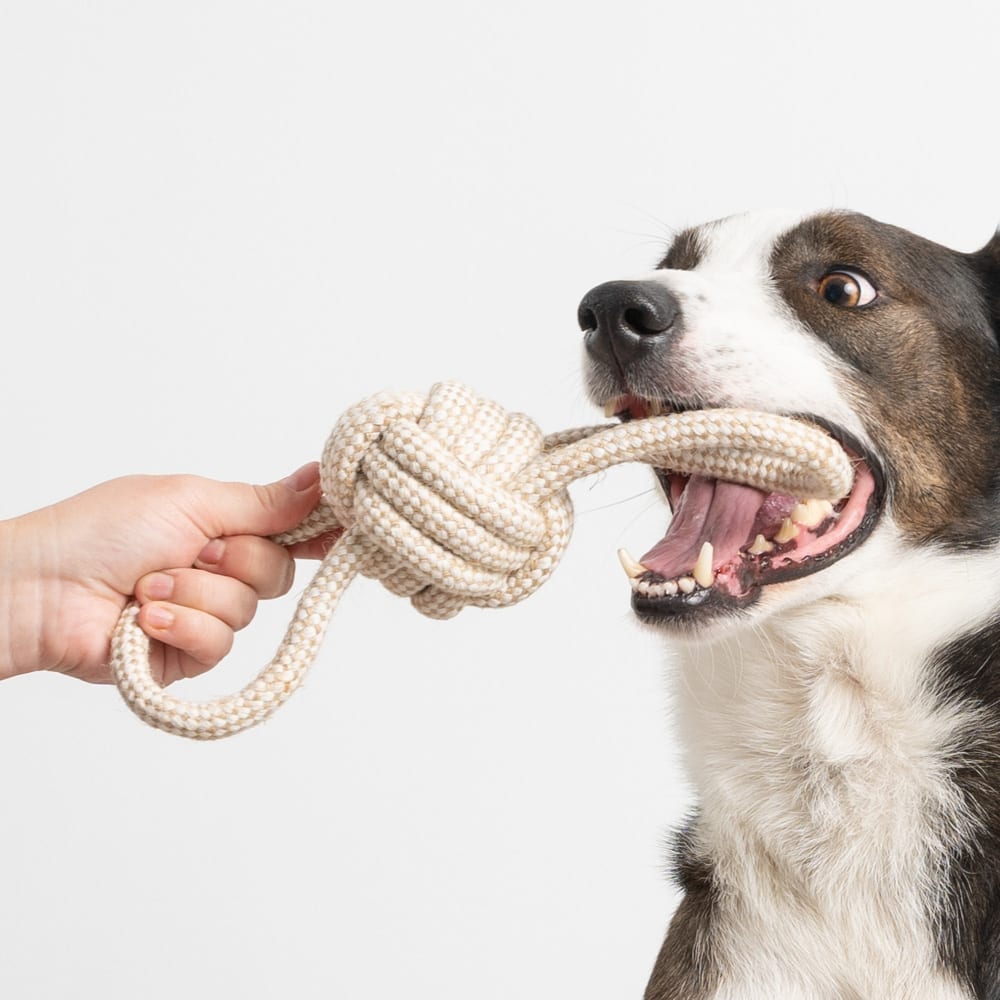
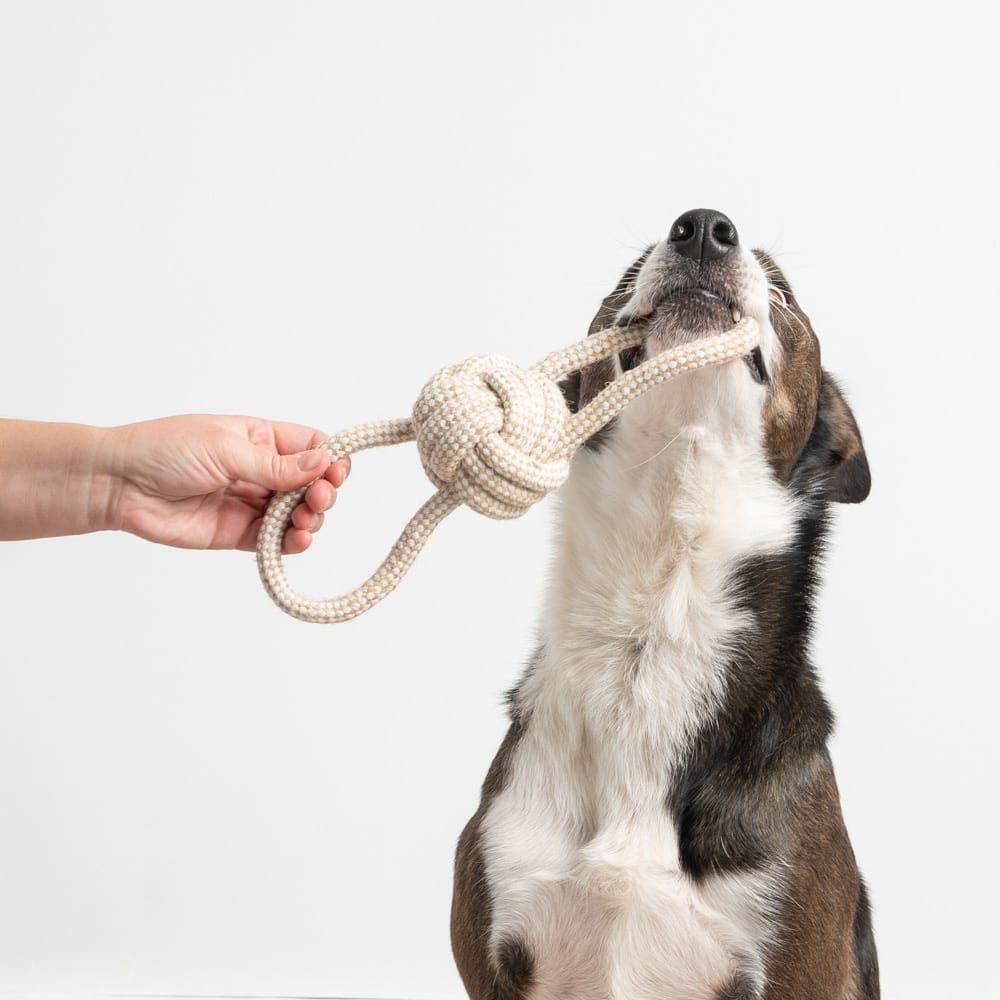
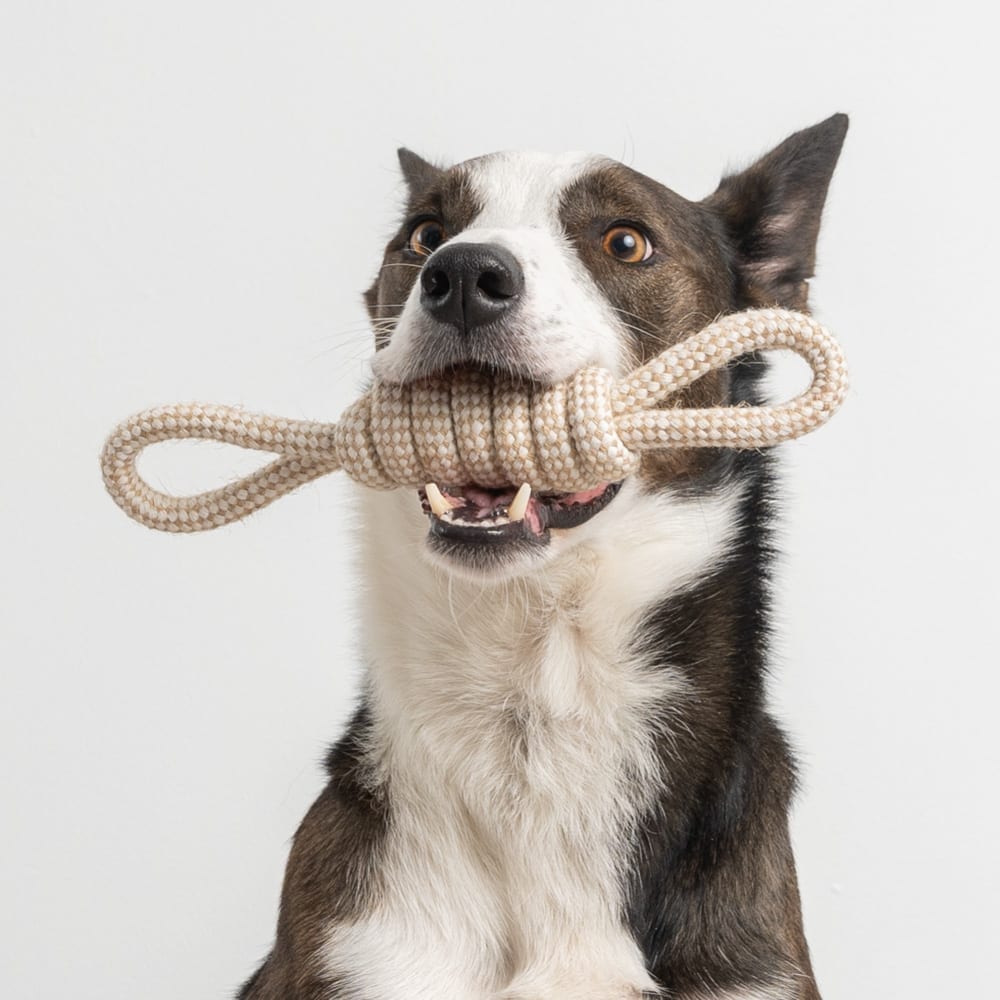
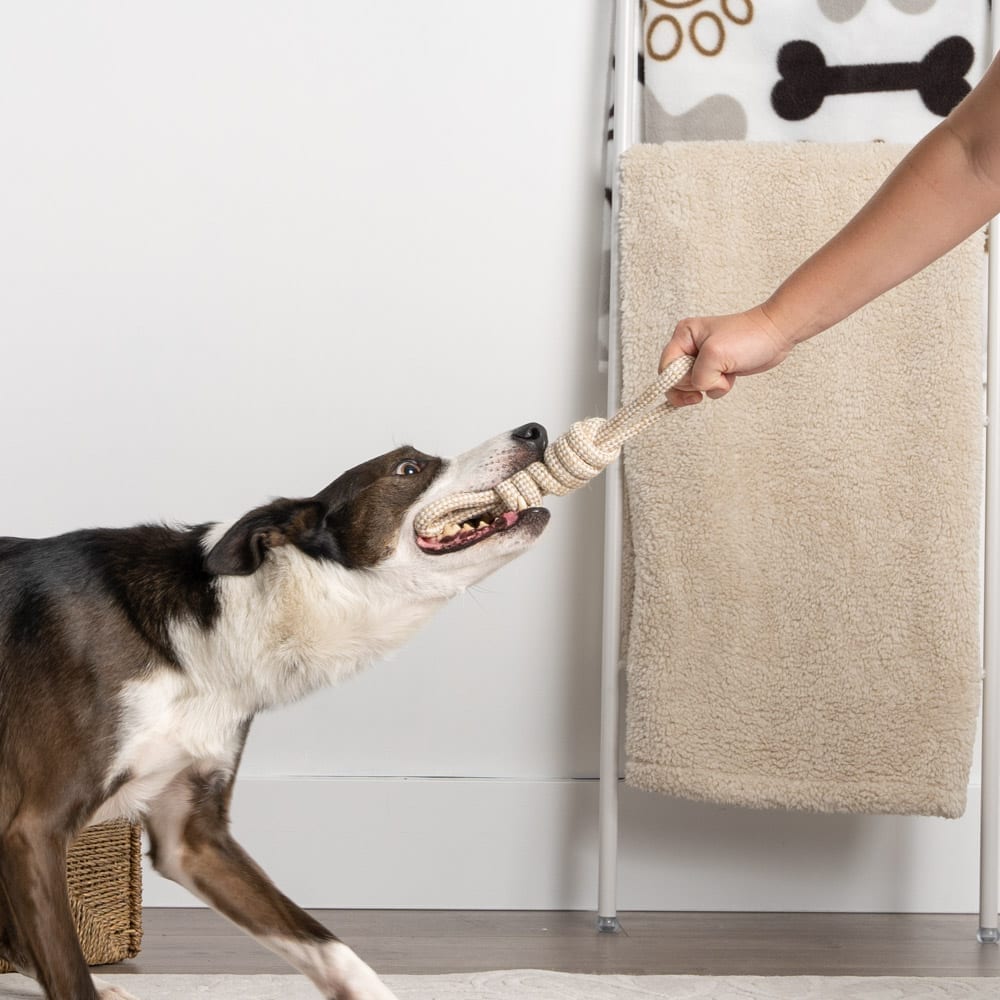
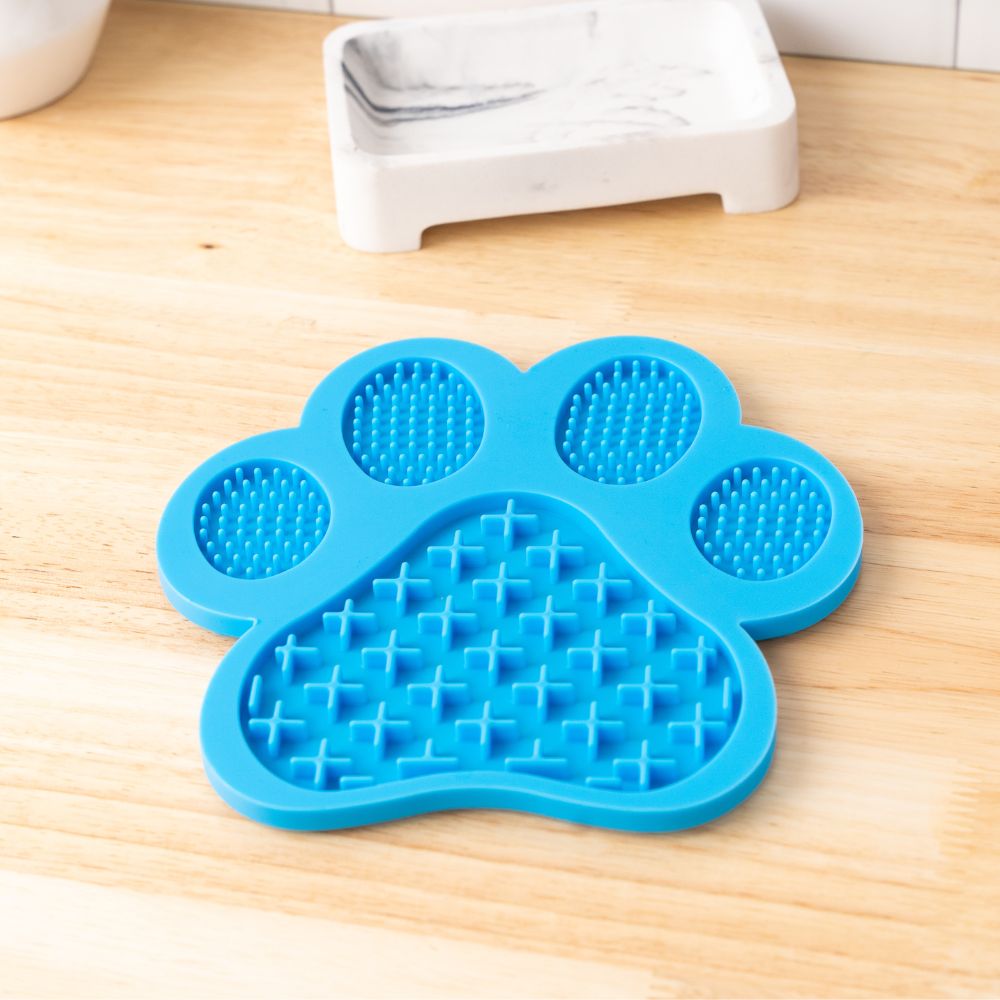
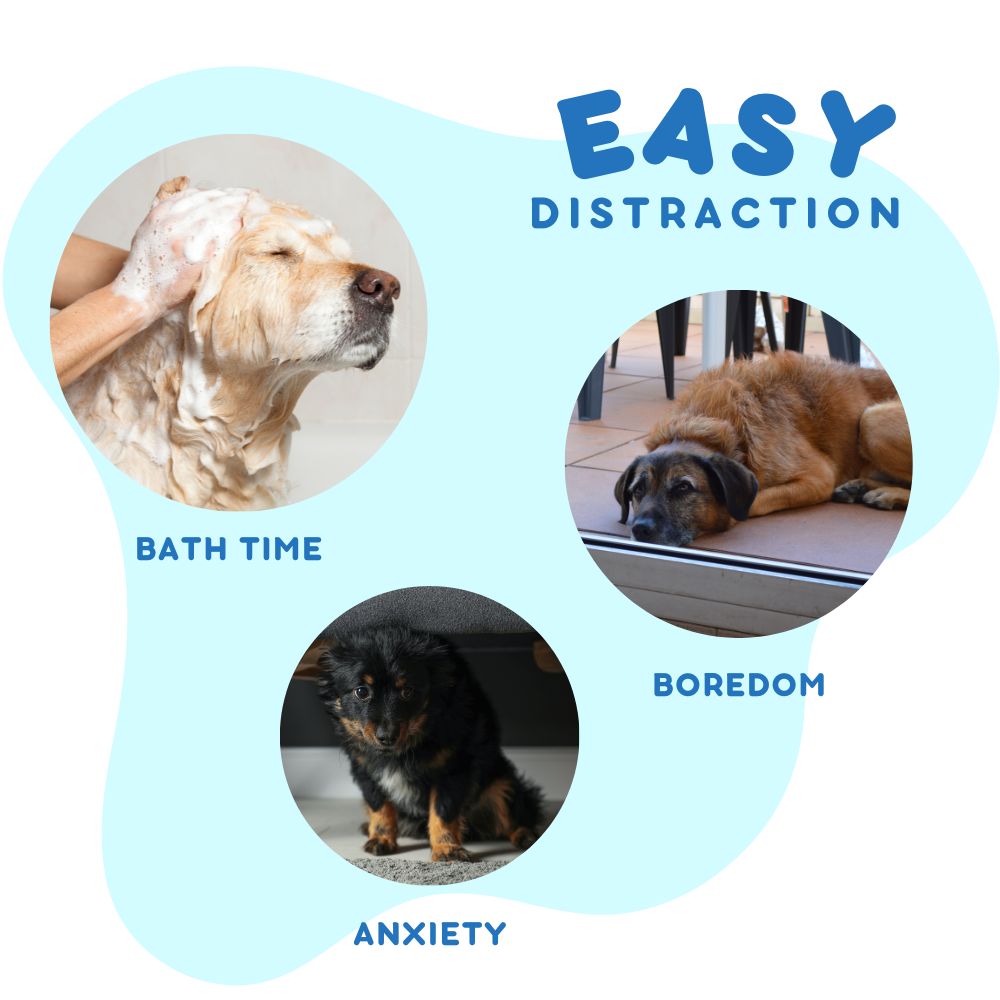
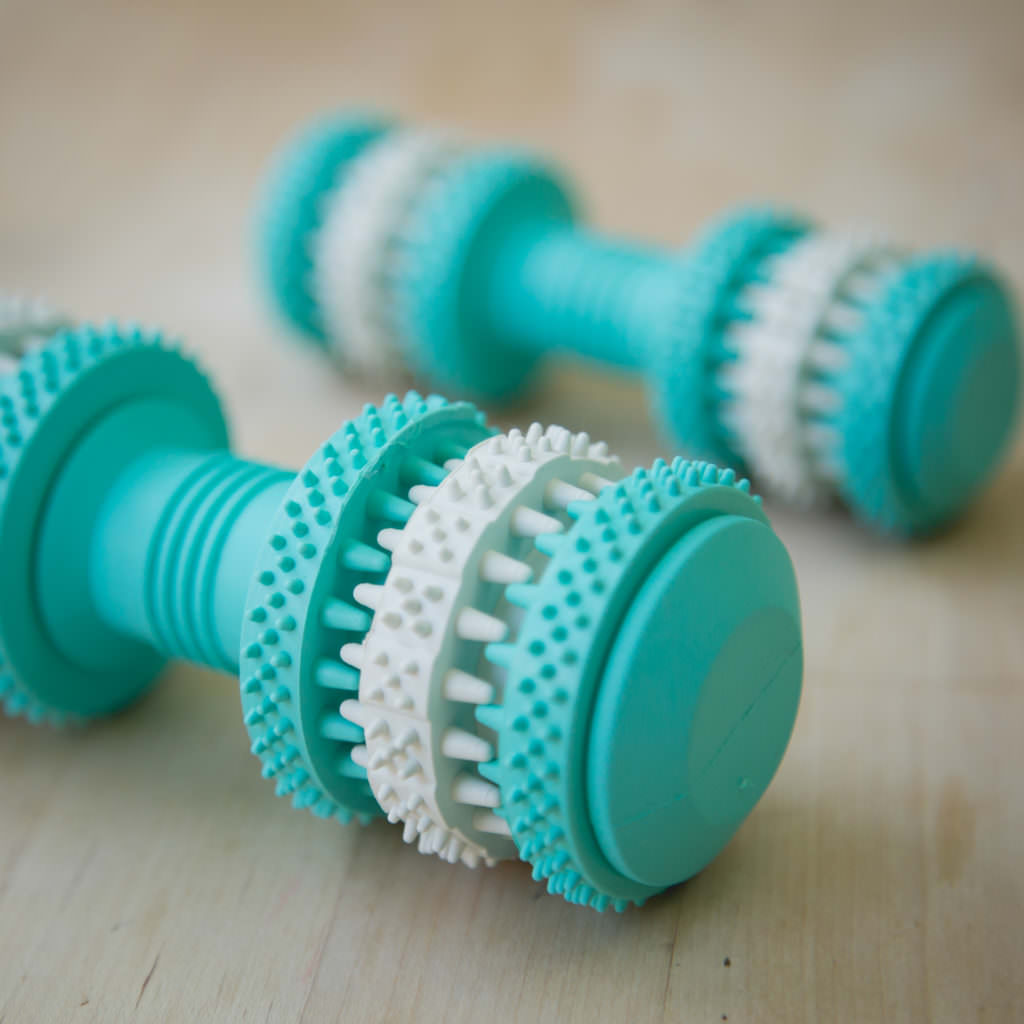

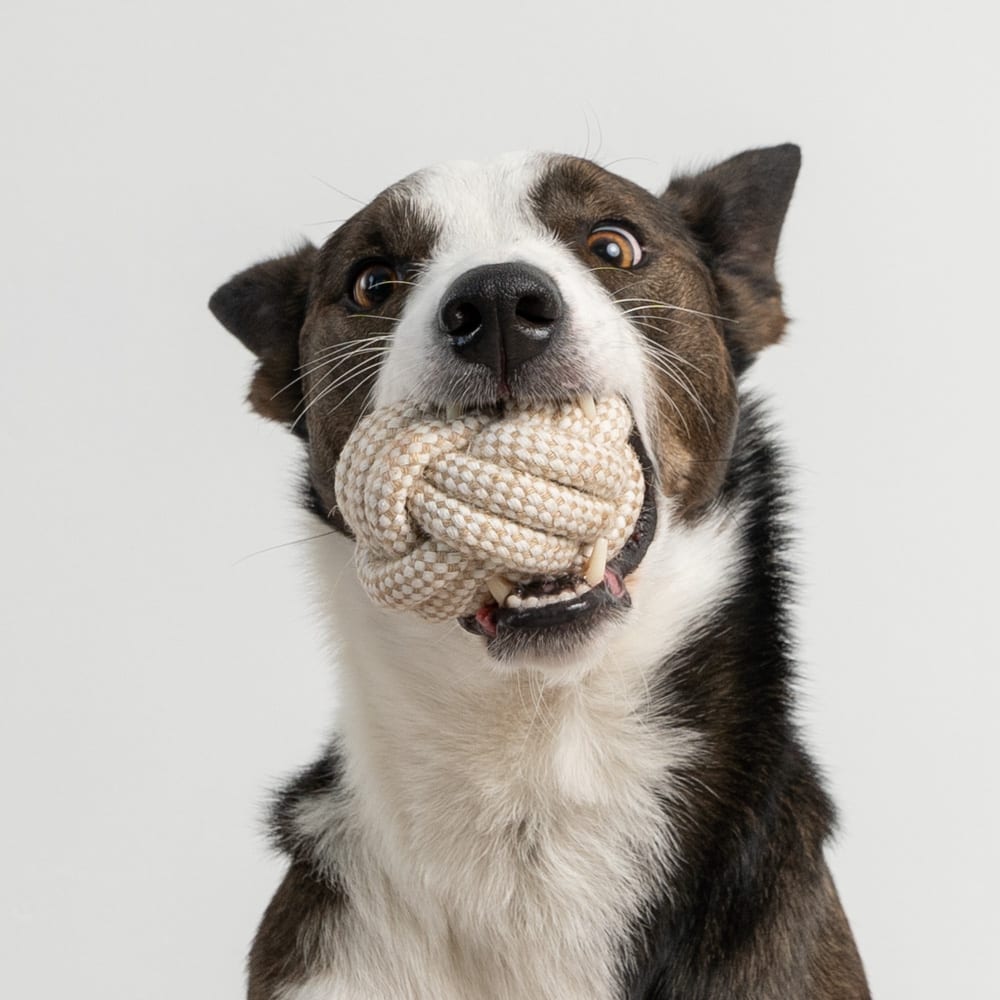
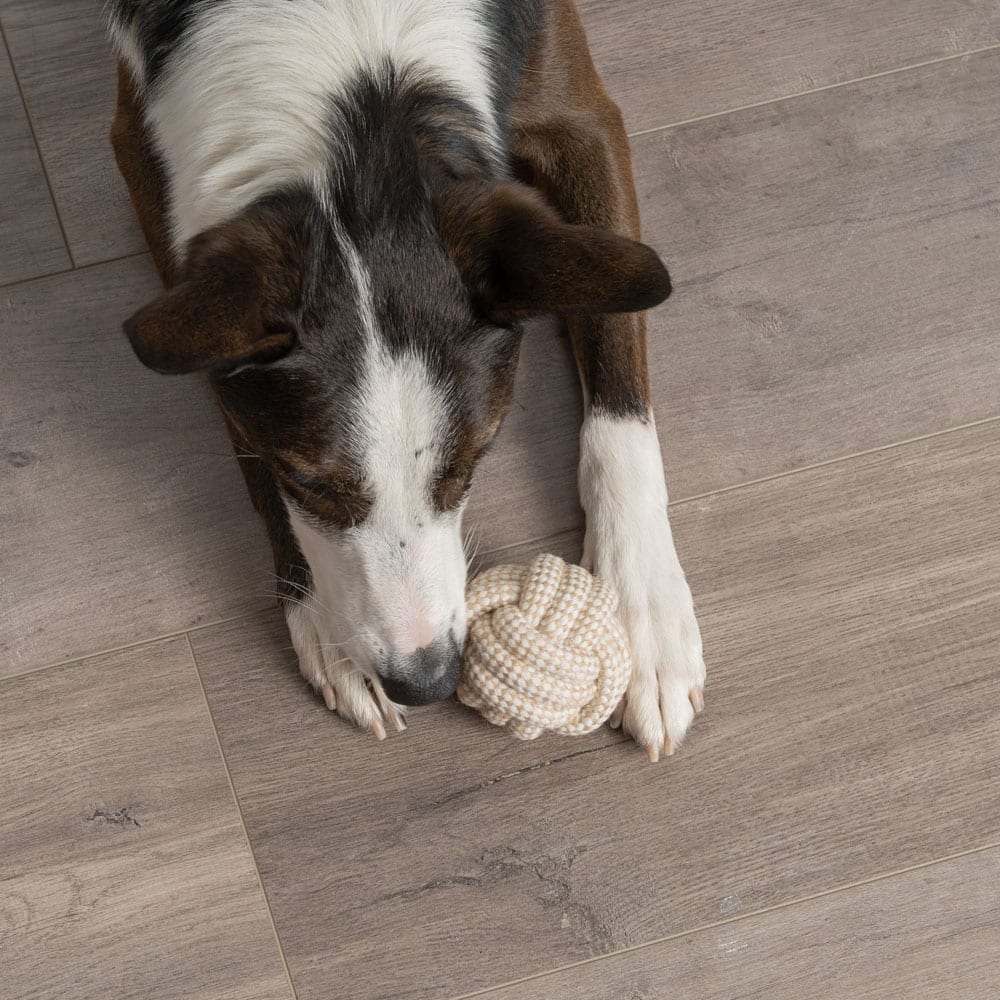
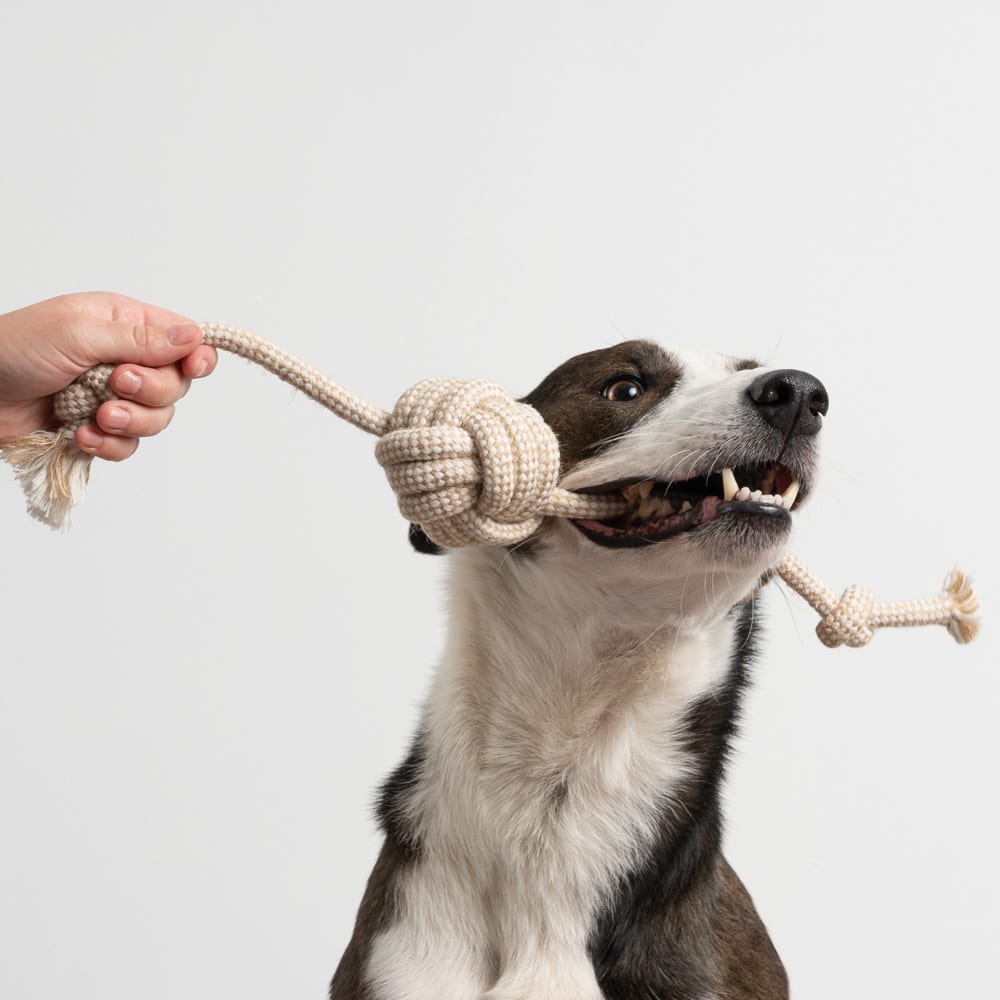
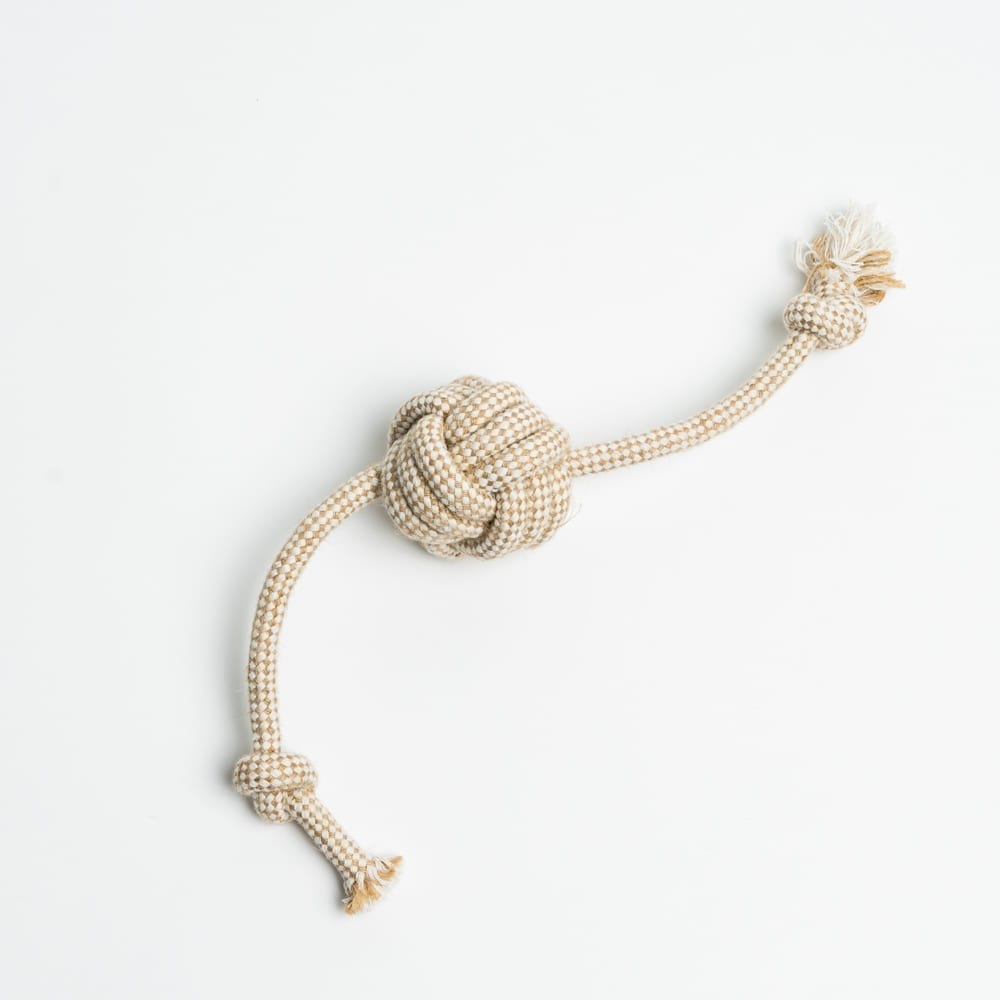
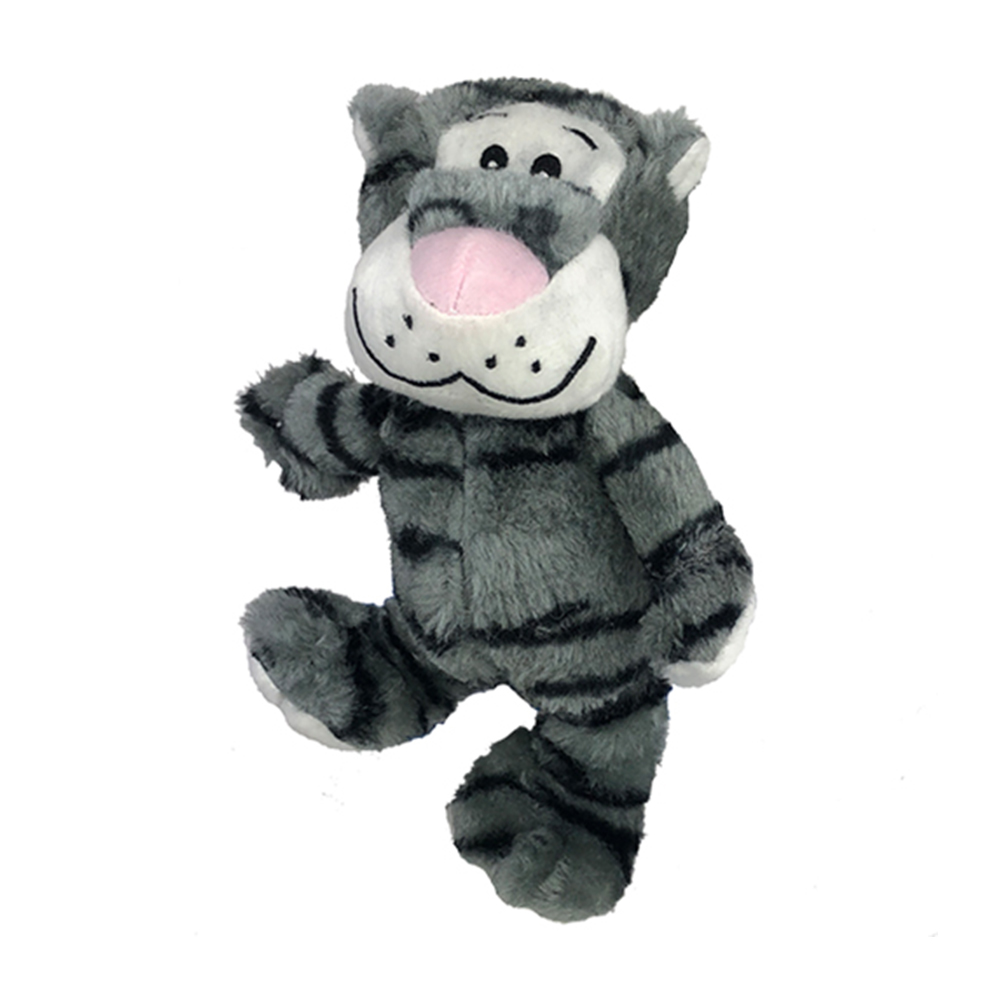
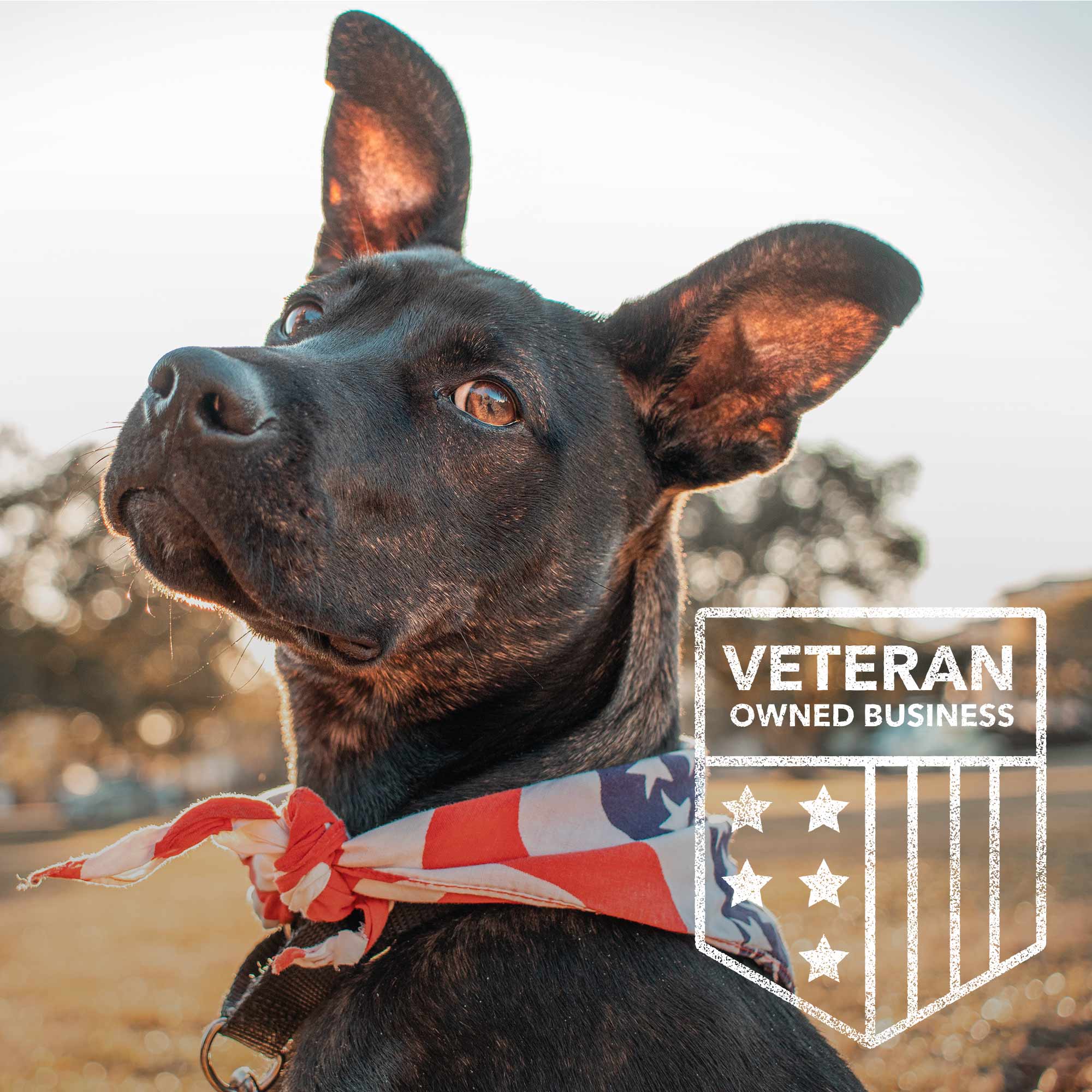
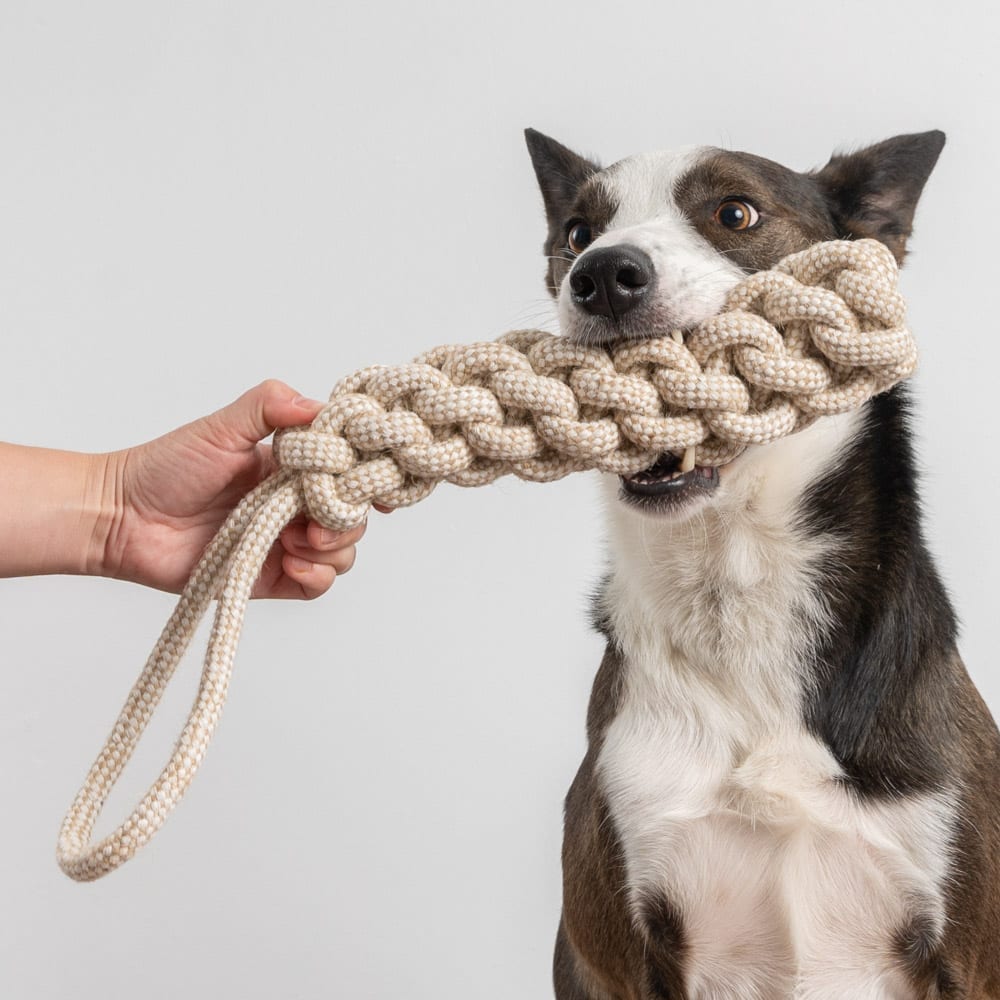
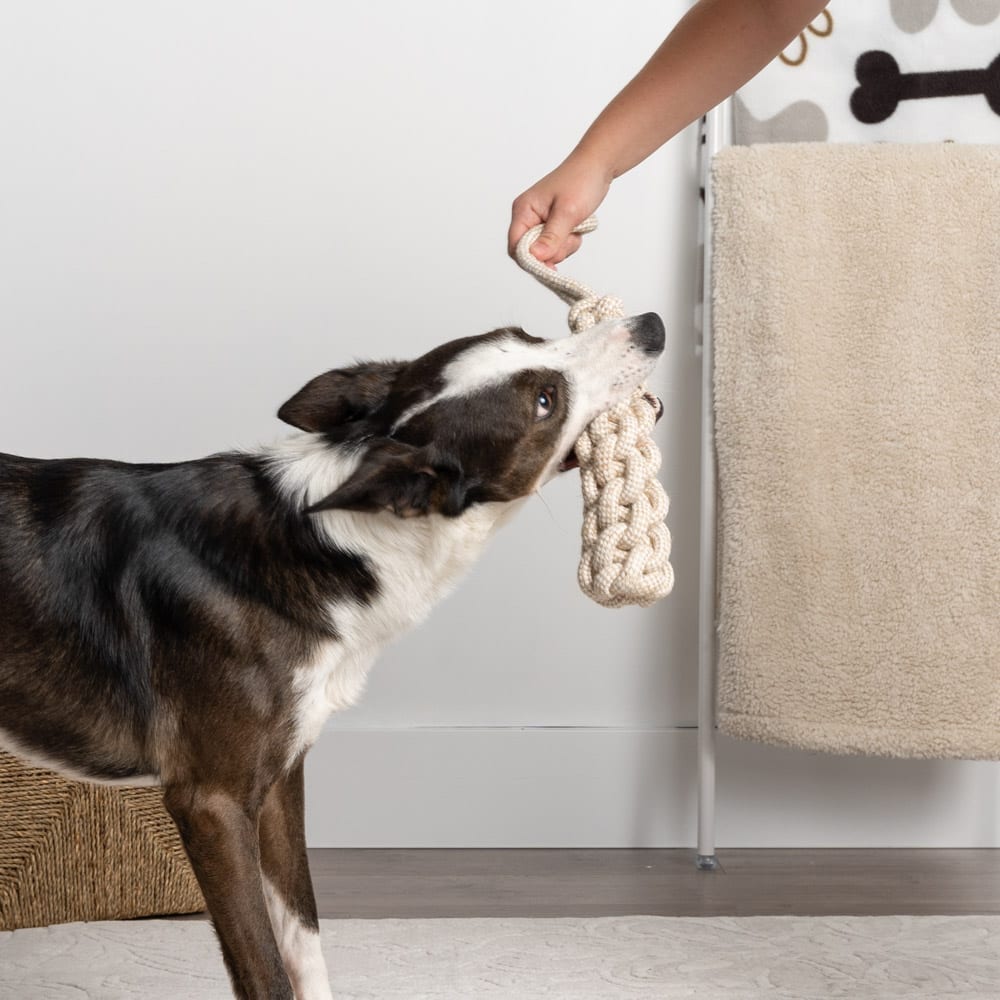
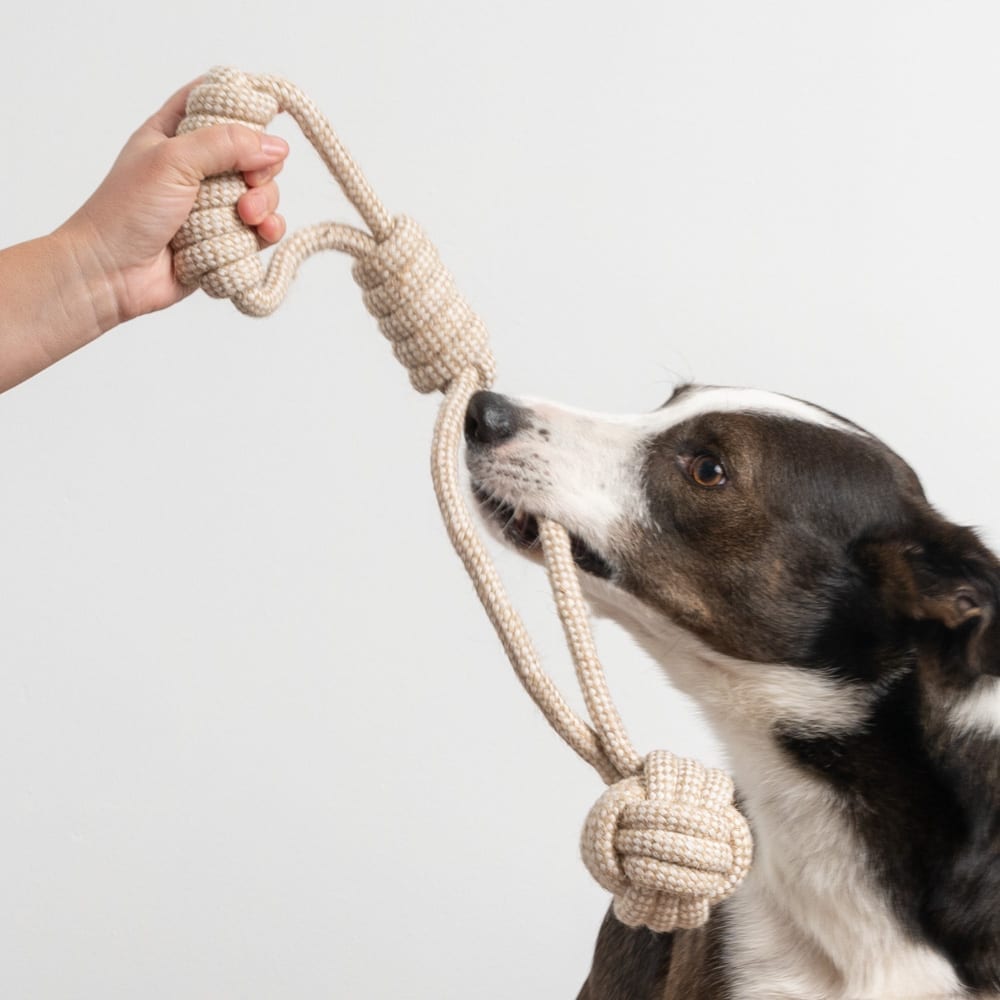
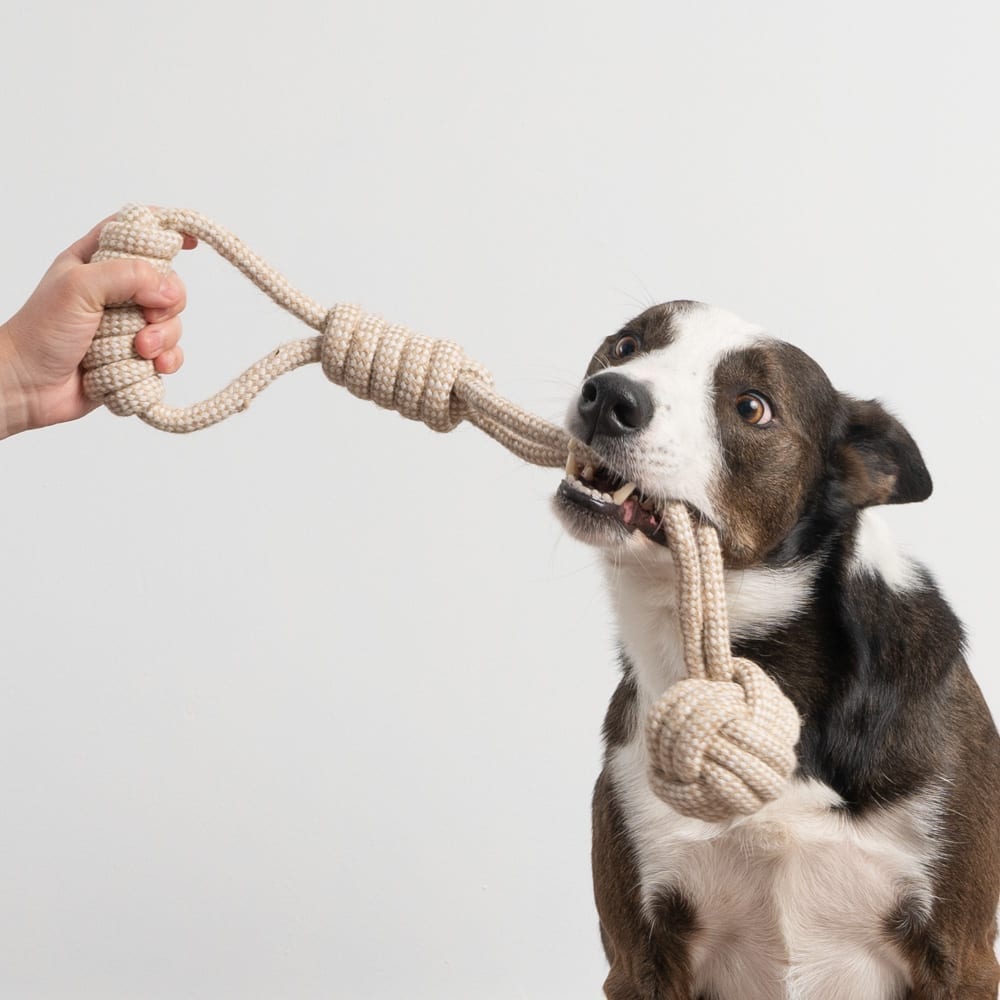
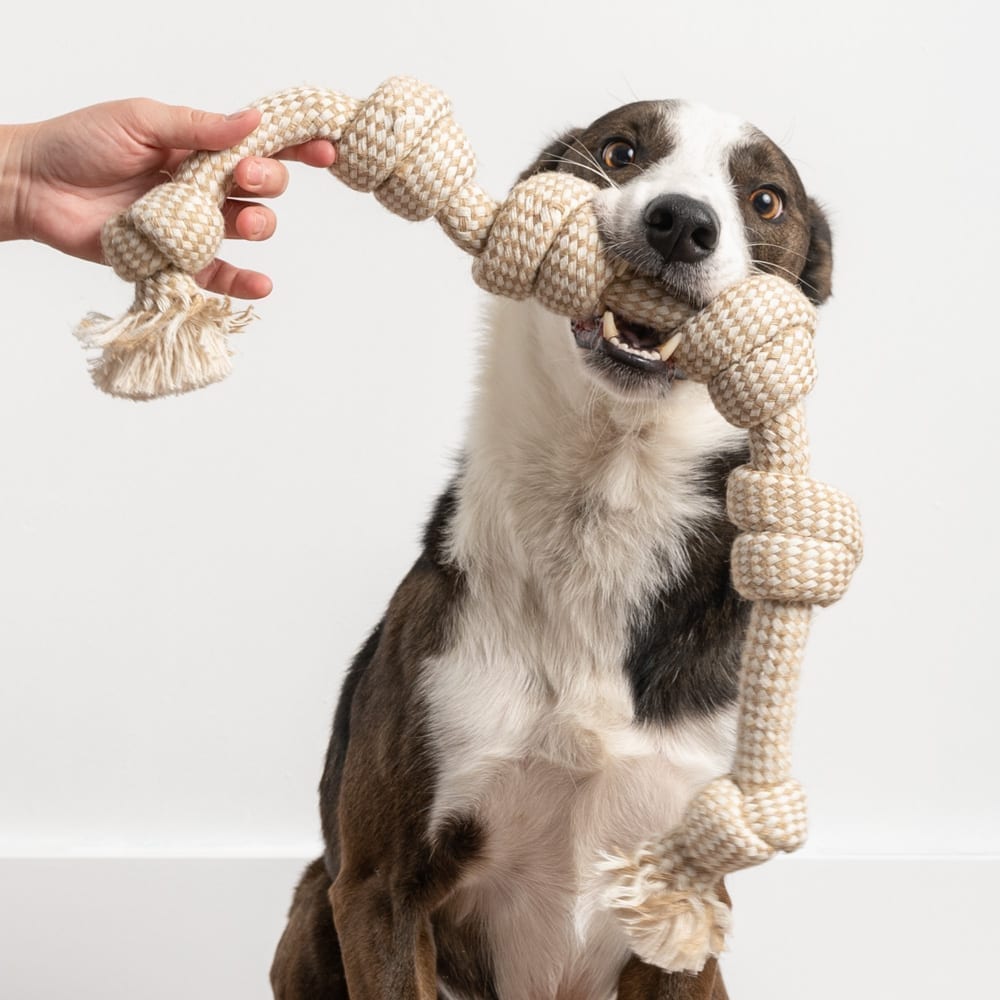
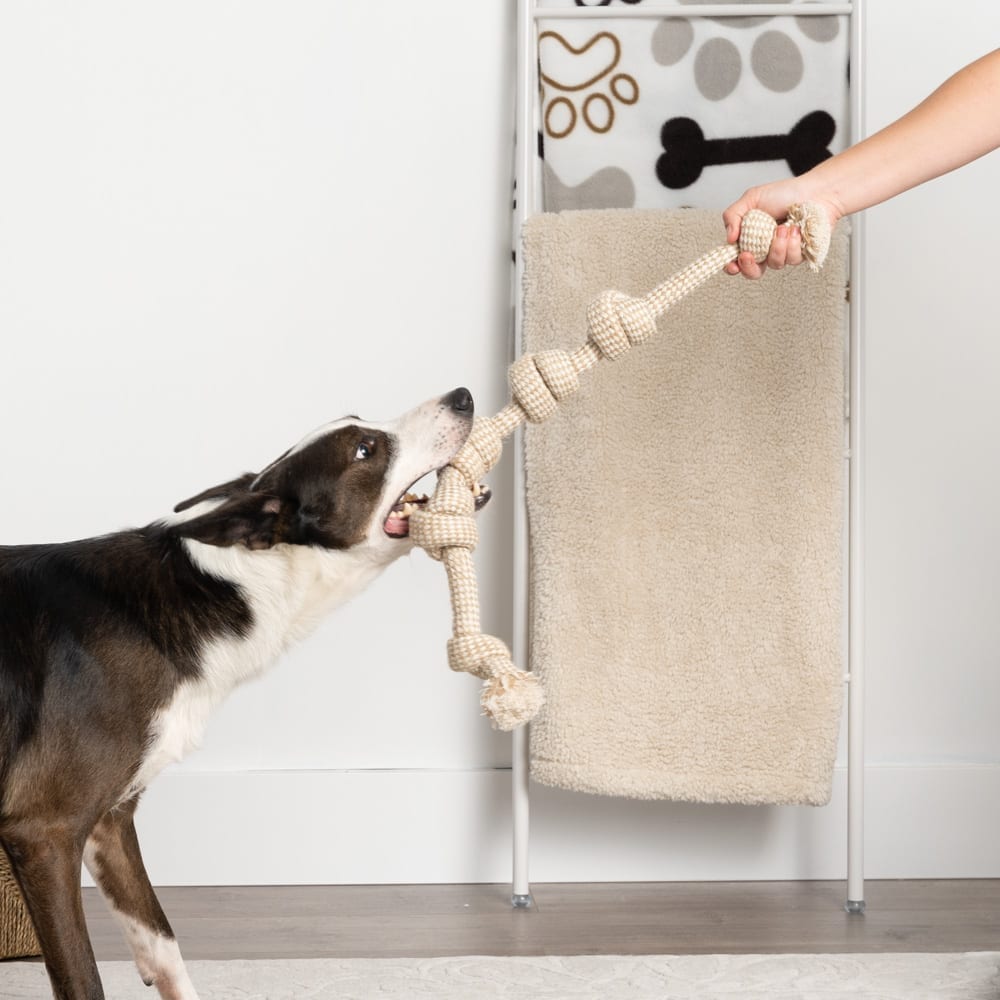
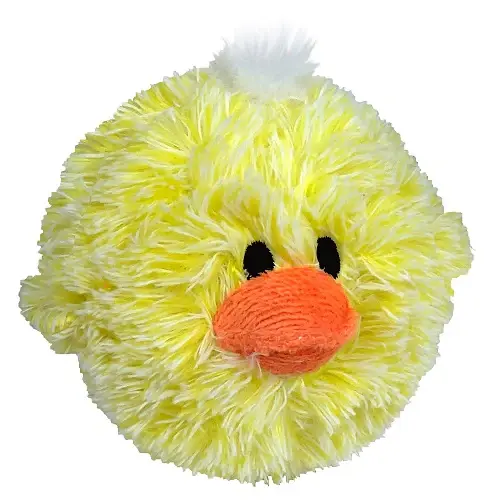

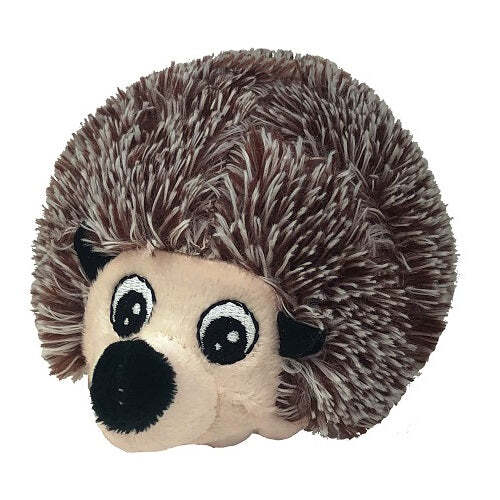
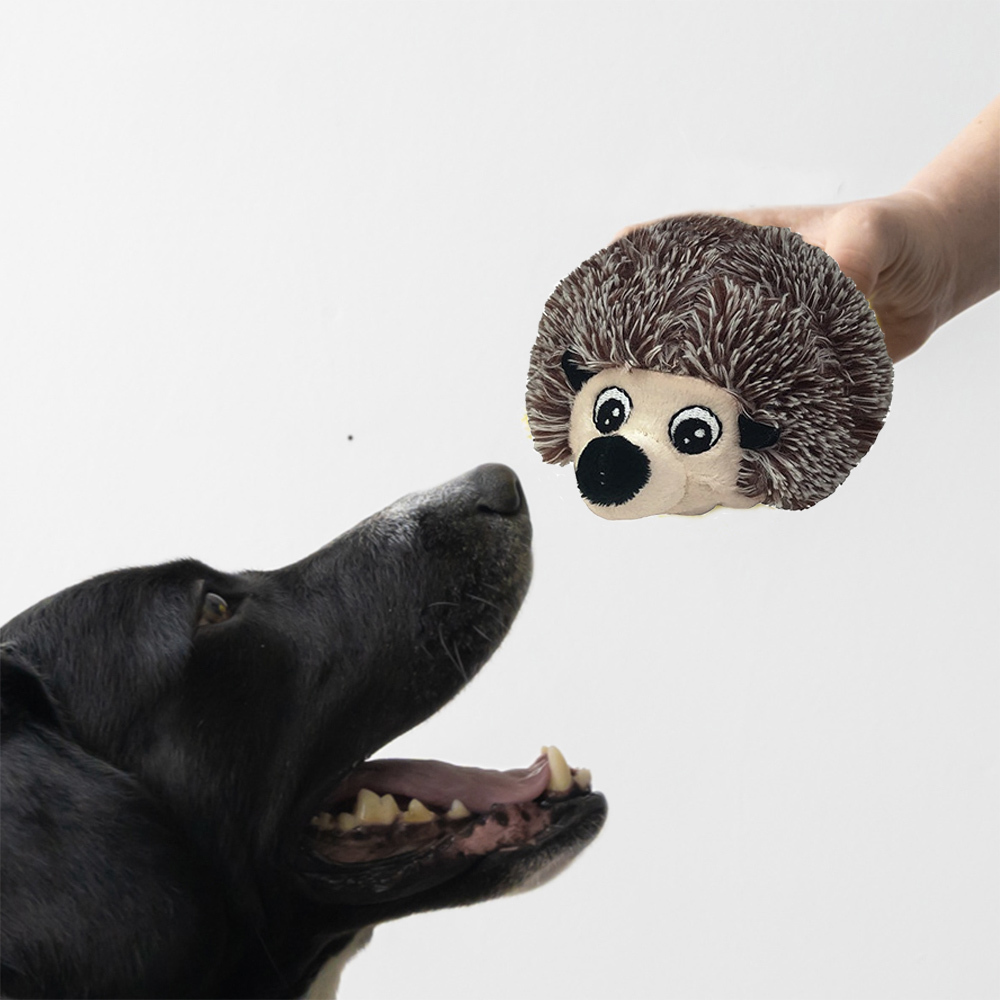
 Toledo, United States.
Toledo, United States.